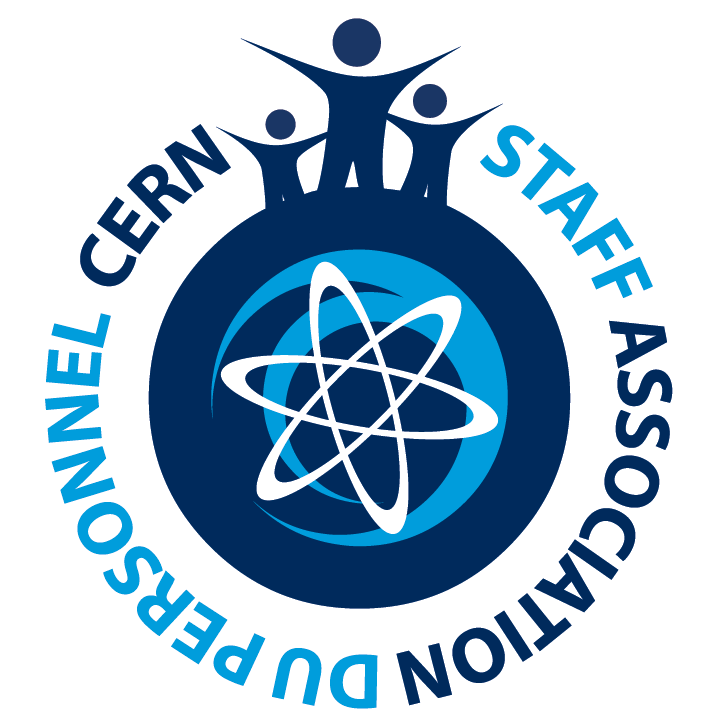QUESTIONS & REPLIES FOLLOWING THE PUBLIC MEETING OF THE 31ST MAY 2022

Is the CERN council going to break the collaboration with Russian institutes? Is there anything that the Staff Association can do to bring the voice of staff members on this issue? Scientific collaborations should build bridges across people, not divides between nations.
The Staff Association expresses its full solidarity with our Ukrainian colleagues, their families, and the entire Ukrainian population. CERN is that special place that brings together people from all over the world, united to push back the frontiers of knowledge, science, and technology for the benefit of all humanity. The raison d'être of our Organization is to be a place where scientific excellence and multinational, pluricultural collaboration coexist daily, while respecting fundamental human values. This is what has long made its worldwide reputation and will shape its future.
The Staff Association‘s mission is to represent CERN personnel and their families. It is thus but normal that it affords members of the personnel and their families any material and moral assistance they may require. This clearly applies to our Ukrainian colleagues and their families, but it also applies to all Russian colleagues who oppose this war.
Apparently Swiss Publica doesn't accept transfers from the CERN pension fund, nor does the UBS (and the majority of other Swiss banks) accept the transfer to their 2nd pillar. Is there any effort to solve this issue?
Not all pension funds in our member states allow the transfer of funds from the CERN pension fund to them. This situation is well known but unfortunately the SA, either the pension fund management unit, can’t play a role of influencer within this area.
Could you please let us know if the SA proposal on an improved pre-retirement scheme is still on hold?
The SA has presented a proposal to the HR department two years ago aiming to:
- Improve flexibility on departure around retirement age (65 +/- two years)
- Improve flexibility in the management of the employee's time
In view to :
- Benefit from the reflection on the updating of existing pre-retirement programs
- Simplify the administrative process by reducing the multiplicity of time management programs to a single modular system to meet different needs.
- Review existing early retirement programs and review them to meet current needs of the organisation and staff
Since then, HR Department has not commented on the subject despite reminders from the SA, in particular during SCC (Standing Concertation Committee) meetings.
Following the Covid period do you know when the family members can get their access cards?
Family members can get their access cards as before the COVID period. To get them, you can contact the access card service:
Phone: 66666, +41 22 76 66666
https://admin-eguide.web.cern.ch/en/procedure/cern-access-card
What can the staff association do to support recruitment from under represented nations especially major funding nations like Germany and the United Kingdom?The 5 Yearly Review exercise whose aim and methodology is described in Annexe A1 of the Staff Rules and Regulation defines:
- The five-yearly review of the financial and social conditions of the staff, fellows and MPA;
- The annual review of the basic salaries and stipends, but also of the subsistence allowances and family benefits.
The aim of the Five-yearly review is to ensure that the financial and social conditions offered by the Organization allow it to recruit and retain staff members of the highest competence and integrity coming from all Member States. Regarding fellows, the conditions must remain attractive compared to those offered by comparable research institutions; for the MPA’s the conditions must take into account the highest cost-of-living in the local region of the Organization.
During the 2021 5YR, the SA has repeatedly been highlighting that the Organisation has Generalised recruitment and retention difficulties continue to worsen for 5 countries, namely the Netherlands, the Czech Republic, Germany, Denmark and Sweden, the recruitment and retention over the past 15 years remain fragile for Norway, Great Britain and Slovakia. The SA made several proposals to increase CERN’s attractiveness which were pushed aside by the Management.
Is the Staff Association ever inviting us to pronounce ourselves on the real subject of importance, e.g. by means of a referendum sent to all?
Yes indeed, as announced during the last staff meeting the 31rst of May, a survey will be launch in autumn, and we invite all employed and associated members of personnel to make their voice heard and participate.
If you want more members, do some of these presentations in English. Many staff speak English as a second language and French perhaps only as a third language.
Since January, every monthly Staff meeting is simultaneous translated in English by a translator when the slides are in English, and the presentation is done in French. Both French and English versions are recorded and available via Indico.
We sincerely hope that this issue is not a real problem to become a member and support and join the SA.
Are other benefits than salary (especially the 8 weeks of leave that member of personnel have) get taken into account in the surveys done to determine the attractiveness of the Organization? And if so, how?
Yes, they do. For instance, yearly working hours are factored in when comparing salaries (comparators’ working hours are adjusted to CERN’s). Attractiveness is based on multiple factors: the interest of the job, the reputation of CERN, the possibility for the spouse to find work, the multicultural place, the location of CERN, the salary, the family conditions, the health insurance …. and holidays. Historically, some of these leaves are the result of previous negotiations relating to salary non-indexation. It is very difficult to determine each person's motivation for time off. It is the overall package that is relevant.
If financial conditions worsen at CERN, why not considering an effort from the most privileged employees in the Organization (IC Staff in Grade 8 and above could see their salary frozen for the rest of the mandate for instance)?
The strength of CERN is its solidarity, the collective spirit that drives the staff. Differentiating between staff members in this way would very quickly lead to the break-down of this unity. Moreover, the benefit would only be marginal.
I would like to hear CERN's retrospective opinion on its decision not to adjust salaries and stipends while in the middle of the biggest inflation of the last many years?
Inflation compensation always lags inflation and the high inflation you mention which has occurred in recent months has yet to materialize in annual figures as can be seen from the official Geneva and Swiss statistics:![]() At CERN, the cost variation index (CVI) for salaries is based on inflation August to August and the high inflation you mention will first impact it when it is calculated in the autumn and used as a basis for a salary adjustment to occur in January 2023. Note that to take into account how well or how poorly inflation is compensated for in Member States, the CERN salary CVI not only takes into account inflation but also how much of it is compensated for in the civil services of Member States. CERN is not an island and it staff cannot be treated any better or worse than Member States treat their employees. That this occurs is in the interest of all of us and the Organization; Member States have understood this and have granted the calculated CVI for many years, as per their commitment to do so. Last time this was the case was last December when the calculated salary CVI (+0.30%) was granted.
At CERN, the cost variation index (CVI) for salaries is based on inflation August to August and the high inflation you mention will first impact it when it is calculated in the autumn and used as a basis for a salary adjustment to occur in January 2023. Note that to take into account how well or how poorly inflation is compensated for in Member States, the CERN salary CVI not only takes into account inflation but also how much of it is compensated for in the civil services of Member States. CERN is not an island and it staff cannot be treated any better or worse than Member States treat their employees. That this occurs is in the interest of all of us and the Organization; Member States have understood this and have granted the calculated CVI for many years, as per their commitment to do so. Last time this was the case was last December when the calculated salary CVI (+0.30%) was granted.
It often feels like there is a significant divide between grade 4 and grade 6 staff at CERN, and the barriers to upward mobility seem to be larger than just the grade 5 sitting in between. Is the Staff Association considering any action to address this apparent glass ceiling?
The SA is actively participating in CDWR (Career Development Working Group), there are some opportunities and new support from Organisation if you wish to see your professional development duly recognized. Following the recommendation of the CDWR, the SCC endorsed the proposal to design and implement a Career Development discussion for all staff that are in personal positions or maximum grade. The recommendation is that once the first population has been addressed, this becomes an ongoing activity, and becomes available to all staff arriving at 113%.
The objective is to have a wrap up discussion including Staff, Group Leader and HR Representative to commit on actions (for example outcome of discussion could be: Stay AS IS, work on project, reskill, upskill, internal mobility, external detachment.
Be part and give your feed-back !
But we also know that some people are happy with their job / benchmark job and would rather have the possibility to continue what they like and being appreciated for that. Therefore, we will continue on insisting on the extension of grade 5 scale, even though it has been refused previously.
Can you tell us what the SA is doing to support the recruitment of women to STEM staff positions at CERN.
The SA does not have any operational capacity in HR matters and it is thus not able to directly influence in such matters. However, the SA has always supported ideas and proposals to promote as diverse a recruitment as possible. Same goes for advancement and promotion of women or the appointment of women to positions of responsibility. Hand in hand with this, the SA has always supported efforts to combat discrimination in all its forms, to promptly deal with harassment of all types, or efforts to develop inclusive employment opportunities and conditions for all staff members.
Do you agree these questions about penalizing people in higher grades or at the top of their salary scale are dividing staff against each other when we should be united in discussions with the management?
Yes, penalizing some staff members on the sole basis of, inter alia, their position in the salary grid or the kind of employment contract they hold or their age is counterproductive and is clearly to be avoided. Voluntary measures should be given top priority as should efforts to obtain the resources necessary for pursuing the Organization’s goals and maintain its world-class excellence. Many years ago, the Organization imposed a moratorium on the granting of ICs and some years before that it imposed a freeze on compensation for inflation for the higher grades; both measures generated difficulties much more severe and long-lasting than the achieved resulting cost savings. In contrast to this, the voluntary and innovative Recruitment financed by Saved Leave (RSL) scheme which the SA proposed at the end of the ‘90s to address a reduction in CERN’s budget proved effective and an additional motivation for staff members. It still survives in the form of the SLS even though the scheme no longer aims at delivering additional recruitment possibilities within a constant budget.
